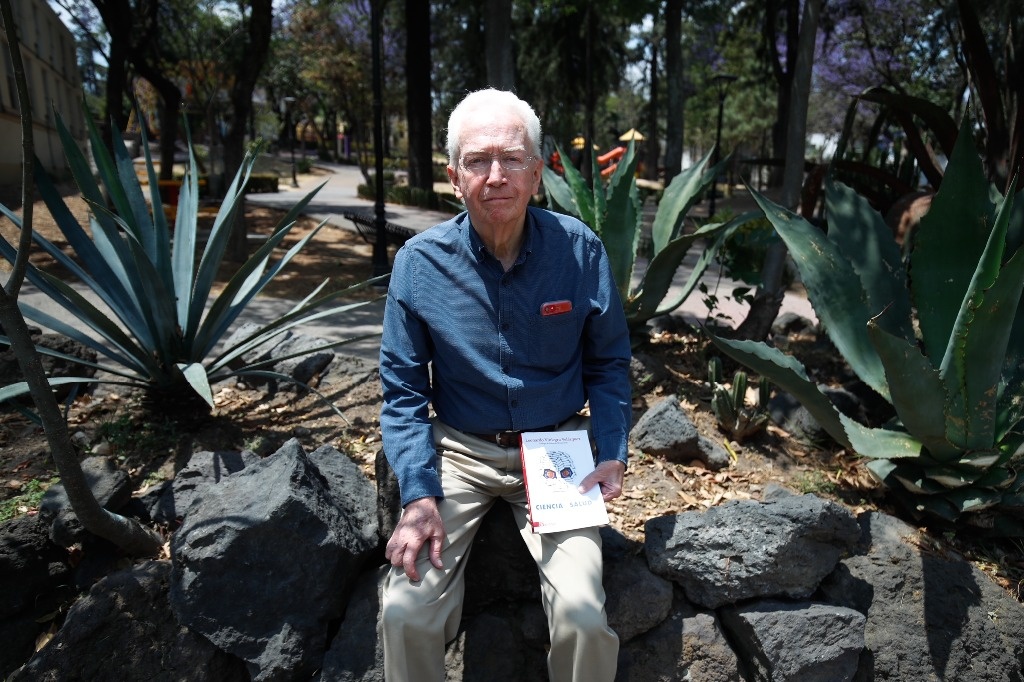Artificial intelligence (AI) goes in the opposite direction to the progress of medicine
considered Leonardo Viniegra Velázquez, doctor, professor, researcher and author of the book Science and health in our time: Criticism of philosophical and scientific thought in the field of health, published by the Economic Culture Fund (FCE).
Interviewed by The Day, stated that The idea of progress is that humans are better, have vital projects related to caring for the environment, solidarity and support among people. In health, progress is that doctors are increasingly careful, that they interact better and better with patients, are more precise in their diagnoses and give more weight to the use of technology for diagnosis
.
He added that technology comes to supplant, not to enhance our ingenuity. And human progress implies the latter, not being increasingly dependent on it.
The coordinator of the biomedical research units and laboratories of the Children’s Hospital of Mexico Federico Gómez said that in the context of the rise of AI it is necessary to consider that The good use of technology does not supplant people, but if we have an artificial intelligence that promises to have a closer relationship with the patient than a doctor, can we imagine what type of medical practice is carried out?
He explained that there are medical spaces in which the patient begins to be analyzed with the results of the laboratory and cabinet tests, not with the clinical history, which allows us to know the patient.
In her book, Viniegra Velázquez makes a critical review of scientific work and proposes other ways of looking at the field of health.
Assess people’s living conditions
The author highlighted some sections of his book, such as Living well: Health care a vital project?
in which he explains that beyond the periodic check-ups and dietary restrictions that medicine contemplates for the benefit of health, people’s living conditions, their taste for what they do and their pleasure must be valued.
Health care begins to kidnap most people of all their interests, the aversion to illness and the endless quest to be healthy, and here, when we talk about a vital project, it is about fighting for dignity in the space where the person is. When you fight for the dignity of life, you dignify yourself, and that is the counterpart of the medicalization of life, of living with the anxiety of getting sick.
He added that in the section Suppressive medicine and stimulant medicine: A penetrating look at medical practice
stated that suppressive medicine never cures a chronic illness; It is what is promoted by the pharmaceutical chemical industry, which constantly renews its drugs, only tries to regulate the conditions.
.
He highlighted that the greatest resources for health studies come from the chemical-pharmaceutical industry, and if you want to have money to do research, you have to work on what interests the industry
.
Acupuncture and herbalism
Viniegra Velázquez stated that the opposite of stimulant medicine is traditional medicines; For example, acupuncture stimulates the body to heal; the herbalism of Mexico is very stimulating
.
In the chapter Criticism of mechanistic causality in health sciences
the author questions the way in which a drug is researched, where we divide the population into two groups, we give one an inert substance and the other the medication we want to test, and they are analyzed based on linear, probabilistic statistics, without considering the complexity of the organisms; the idea of causality is simplified in such a way as if the organism were a machine with an average performance
.
In Colonialism, science and health
Viniegra Velázquez disapproves that The research regulatory bodies require publishing outside, the problems that interest outside, and with the drain on resources for that it is enormous
.
He concluded that his book is a proposal for medical practitioners to stop putting the disease at the center, and focus on understanding the person, to explain that condition.
The work, with a prologue by Eduardo Monteverde, also has the essays The ignored presences of ideas in knowledge
, Scientific reductionism and the seclusion of consciences
y The cultural order, illness and health care
.
#direction #progress #medicine #Leonardo #Viniegra
– 2024-04-24 07:02:48
